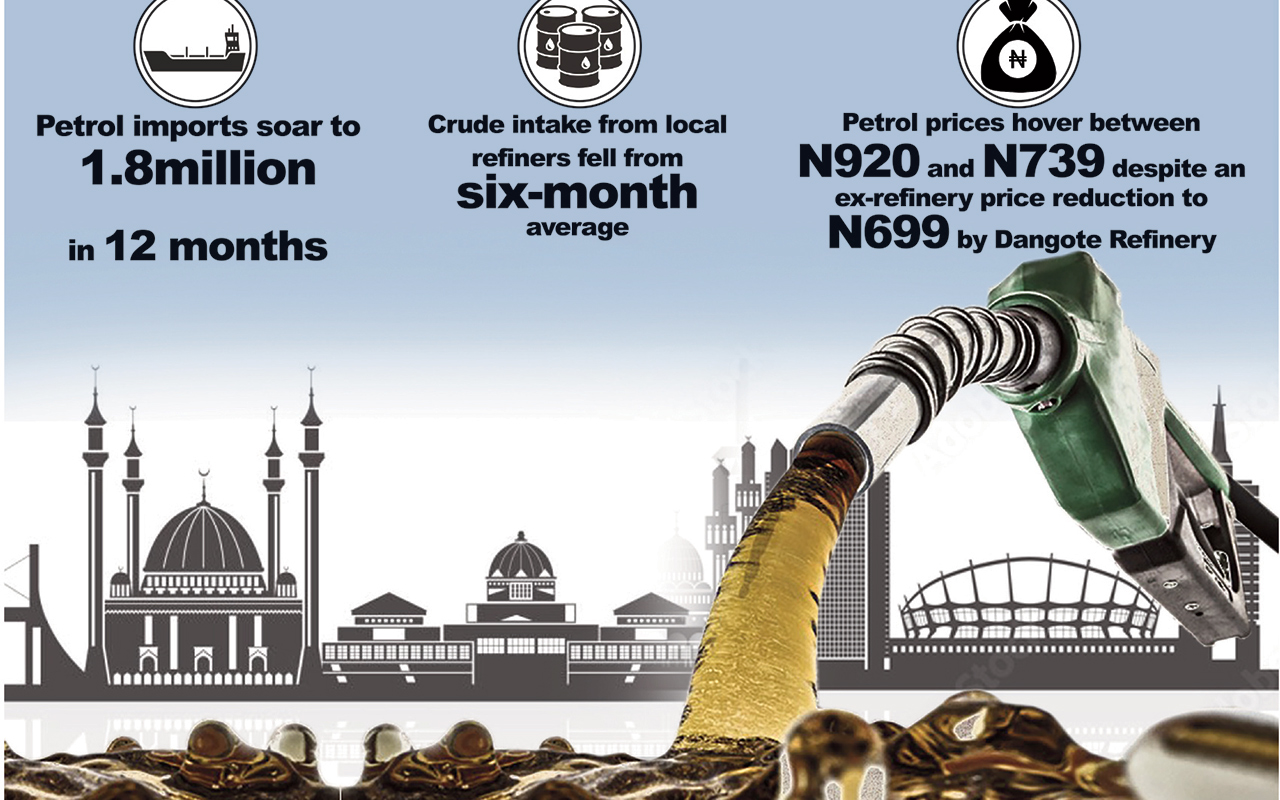• Investment inflow down by 54% in 10 years
• Exit of 2,500 engineers undermines $522m investment
• MNOs suffer 545 access denials, 99 theft cases in H1
• Experts seek new talent pool, knowledge transfer to sustain sector
Nigeria’s telecommunications sector, the toast of foreign investors at the turn of the century, may be undergoing its toughest time in over a decade, as investor fatigue, macroeconomic headwinds, insecurity, and rising market risks stall investment inflows into the critical industry.
Telecommunications, owing to its capital intensity, needs to keep investment growing at a modest rate to maintain its capital stock and retain its current quality of service. As it onboards new subscribers, it is expected to maintain a healthy growth to keep the quality of service (QoS) at par. However, the investment inflow is far from ideal.
In 10 years, from 2014 when the foreign direct investment (FDI) into the ecosystem reached a peak of $994.33 million, to last year, yearly inflow has fallen by 54.1 per cent and remained nearly the same from 2019 to 2024.
Last year, FDI inflow dropped $456.16 million amid wide fluctuation in the value of offshore investment inflow across quarters.
With every push now targeted at sustaining Nigeria’s $76 billion telecom sector, the trajectory of investments, especially from offshore, has shown a substantial drop, raising concerns about the quality of services in the industry.
While the overall investment profile in the industry has grown, data from the National Bureau of Statistics (NBS) and other industry reports showed a significant drop in foreign capital inflows in recent years.
Industry experts and associations, such as the Association of Licensed Telecommunications Operators of Nigeria (ALTON), have identified several structural and regulatory challenges as the primary drivers of the decline.
The leading cause of the drop in FDI has been linked to insecurity and vandalism. The constant threat and occurrence of vandalism to telecom infrastructure have led to significant financial losses for operators. It has also been stressed that energy crises are responsible for about 70 per cent of the service downturn.
The sector is also highly vulnerable to Nigeria’s foreign exchange (FX) market movement. Operators trade in Naira but rely on U.S. dollars to import essential equipment, software, and other foreign-sourced inputs. This FX volatility has made it difficult for companies to plan and has deterred foreign investors.
The telecom sector is still burdened with about 54 taxes and levies from federal, state, and local governments, which increase operational costs and discourage investment.
The challenges remain central and have impacted telephone service quality for the about 172 million active subscribers in Nigeria.
Amidst a drop in FDIs, MTN and Airtel alone spent $522.33 million on critical infrastructure upgrades in the first half of the year. Plus, spending by Globacom and struggling 9mobile or T2, the total infrastructure spending in the period may be well over $600 million. This is equally outside the $1 billion currently being expended on upgrades and expansion of infrastructure.
There is also the paucity of key manpower required to optimise the investment, which, to some segments of the sector, may undermine the huge spending and detract from the efforts to improve service delivery significantly.
While vandalism has become more pronounced, now occurring almost daily, battery theft, fibre cuts, among others, have taken the shine off the telephony sector.
The Nigerian Communications Commission (NCC) data showed that network outages worsened as telecom operators reported over 1,100 fibre cuts, 545 access denials and 99 theft incidents since January. In fact, MTN claimed to have suffered over 5,400 fibre cuts in the last seven months.
Although the crisis is not abating despite the passage into law of the Critical National Information Infrastructure (CNII), which recognises telecommunications as critical infrastructure and makes the damage a criminal offence, another major challenge silently stunting the sector’s growth is the dearth of professionals and skilled field workers.
The ‘Japa’ phenomenon – the mass exodus of Nigerians, including skilled professionals – is taking a heavy toll on the country’s telecommunications sector, leading to a shortage of critical technical personnel and directly contributing to the persistent poor quality of service (QoS) for the about 172 million active subscribers in the country.
Hapless subscribers, in the last 10 months, have spent over N2 trillion on voice and data, amid failing services and rising complaints.
According to findings, the sector has seen the exodus of skilled network engineers, site operators, fibre technicians and even project managers, who have migrated abroad, where they earn multiple times what they are paid back home. The NCC disclosed that over 2,500 telecom professionals, including more than 500 software engineers and 2,000 other trained specialists, have left the country since 2022.
The brain drain is creating a significant skills gap, making it increasingly difficult for operators to maintain, optimise and expand their complex networks.
The exodus is particularly felt in specialised, hands-on roles that are crucial for network resilience. This includes network engineers and fibre slicers.
The talent drain is a ticking time bomb for the sector. While telco firms are investing billions in new infrastructure, the lack of human capital to manage the assets is undermining their effectiveness.
Following the liberalisation of the telecom sector in the early 2000s, Nigeria’s telecom industry experienced an influx of FDI, especially from 2005 to 2013. This was driven by a large untapped market, high mobile phone penetration potential, and the establishment of major players like MTN, Airtel and Glo. Then, the operators paid as much as $285 million for their digital mobile licences.
Checks by The Guardian showed that 2014 was the peak, when FDI into the Nigerian telecom sector reached a high of $994.33 million. In 2019, after a decline, inflows briefly rebounded to $944.05 million.
Investments increased to $753 million in 2021, compared to $417.4 million in 2020. This was attributed to the post-COVID-19 rebound.
According to the NBS, the sector has experienced a dramatic decline in recent years. In the first quarter of 2025, FDI inflow into the sector dropped by 58 per cent year-on-year to $80.78 million, down from $191.57 million in Q1 2024. It was the lowest level of investment in over a decade.
This trend contrasts sharply with the broader Nigerian economy, which saw a 67.12 per cent increase in overall capital importation during the same period.
The Guardian findings showed that human resource handlers of telcos are now faced with a double whammy: a struggle to retain top talent and replace those who have left due to a lack of skilled professionals in the local job market, amid falling telephony services.
Industry analysts warned that the trend, if left unchecked, would continue to hamper innovation, increase operational costs and, ultimately, prevent the country from fully realising its digital transformation goals.
Speaking with The Guardian, the Chairman of ALTON, Gbenga Adebayo, said that due to network sustainability challenges, many crises are threatening the sector.
Adebayo said the industry needs to do a bit more about knowledge transfer. He disclosed that the sector has lost lots of its brightest hands to the japa syndrome.
“We must create more knowledge cycles so that we can have more young people participate in Nigeria’s telecom sector. The current set of leaders, which has been equally depleted, is not getting younger; therefore, we need to look at the next layer of people who will run the sector. With the japa syndrome, we have lost a lot of people who could even have contributed significantly in helping to ensure services become optimal. We must act fast to create a new knowledge pool for the sake of the future of the industry,” the ALTON boss stressed.
Adebayo noted that infrastructure protection is critical, saying it is directly proportional to the sector’s next level of sustainability because of the spate of damages operators are seeing, whether in fibre cut, vandalisation of infrastructure, “if something is not done, it will affect the industry badly”.
The government must be commended for the CNII passage into law after over a decade. There is a need for punitive actions, he noted.
Corroborating Adebayo, Head Regulatory and Public Relations, FibreOne, Kehinde Joda, said the japa wave has affected the telecom sector just as it has impacted other industries.
Joda said the sector has seen very skilled network engineers, site operators, fibre technicians and even project managers migrate abroad for better prospects.
The FibreOne Chief, however, revealed that the hardest hit areas are the technical operations – fibre splicers, network engineers, field support teams, and software specialists. He said these roles require deep hands-on experience, which is not always easy to replace overnight when someone leaves.
Further, the President, FintechNGR, Dr Stanley Jegede, disclosed that the first set of people who left the country were largely from the technology sector, especially software engineers who could have contributed significantly to improving the industry’s lot. He stressed that the japa syndrome deeply affected the sector, leaving many gaps to be filled.
Jegede said the ICT sector will need to take advantage of the japa syndrome to reboot the industry by creating a new pool of talent.
“We can use this opportunity to develop buckets of talent adequate for the sector and export purposes,” he stated.
The FintechNGR boss also raised the issue of finding the right talent, stressing that there are situations where there are jobs, “but getting the required skills has equally become another challenge. We need to train, develop and sustain new talents for the industry.”
To bridge the gaps, telecom expert, Kehinde Aluko, submitted, “The NCC, telcos and other fields should offer more competitive remuneration, create better working conditions, and invest more in training and upskilling local talent to mitigate the impact of the ‘japa’ syndrome and secure the future of Nigeria’s digital infrastructure.”
In the face of a growing crisis, all eyes are on the NCC to see how it resolves the quagmire around poor QoS and the ultimatum handed to the operators, especially the tower companies (towercos).
Except that the NCC lowers its expectation, most of the operators ought to be sanctioned for not improving the quality of their offerings to subscribers.
In July, the Executive Vice Chairman (EVC) of the commission, Dr Aminu Maida, gave an ultimatum to key industry players, including towercos, MNOs, among others, to improve services by the end of August.
Discussions at the meeting focused on the recurring challenges in the telecoms sector, particularly power failures, equipment malfunctions, and insufficient site maintenance, which have been causing poor Internet and call services in the country.
Specifically, Maida tasked the tower operators with the imperative of complying with the NCC’s updated QoS framework, which now extends performance obligations to infrastructure providers, not just telecom service providers.
While the telecom sector has poured billions into building bigger and faster networks, experts pointed to a crucial disconnect between CAPEX and the actual QoS experienced by customers.
Aluko said the challenge isn’t just about building new infrastructure, but also about managing and optimising the existing systems.
Referencing a recent report, which noted that a major issue lies in “network visibility”, he said many telecom companies have lagged in their ability to monitor, analyse and resolve network issues in real-time.
He said this means that even with state-of-the-art physical infrastructure, operational inefficiencies, and a lack of data on network performance can lead to a degraded user experience.
According to him, many operators are grappling with outdated, decades-old systems that don’t seamlessly integrate with new technologies. He said this creates bottlenecks and makes it difficult to maintain a consistent quality of service.
The Minister of Communications and Digital Economy, Dr Bosun Tijani, in May, said Nigeria’s telecommunications sector should experience a dramatic improvement in service quality by the third quarter of 2025, driven by a $1 billion investment in network equipment.






